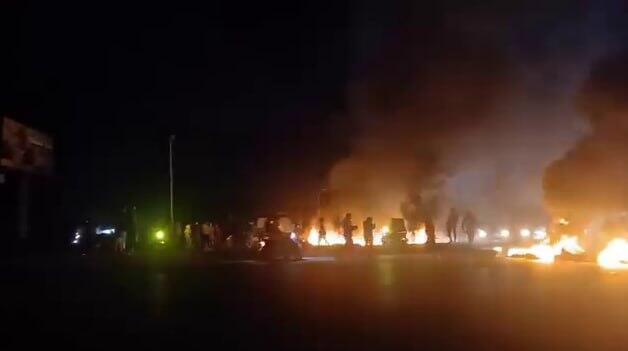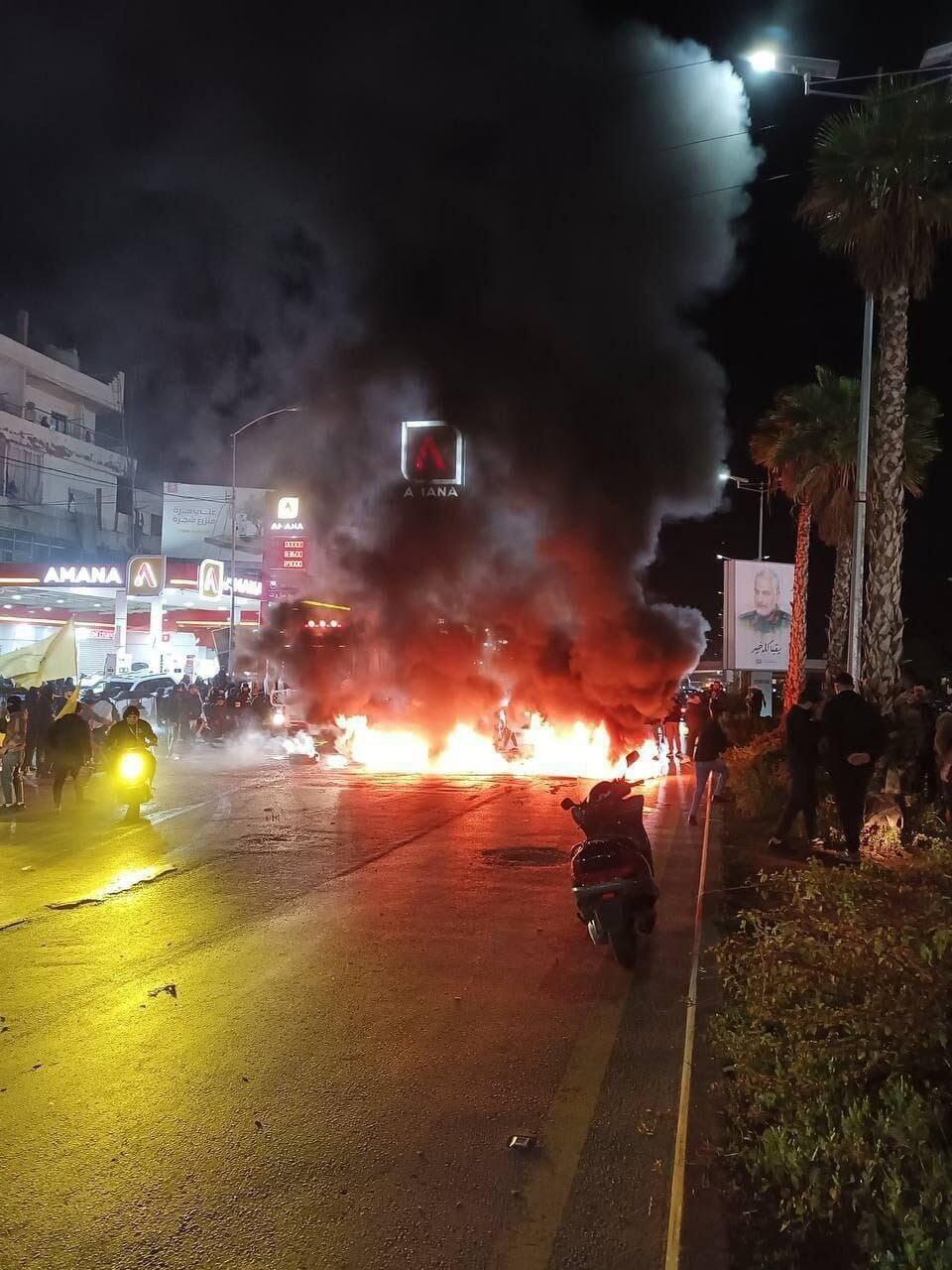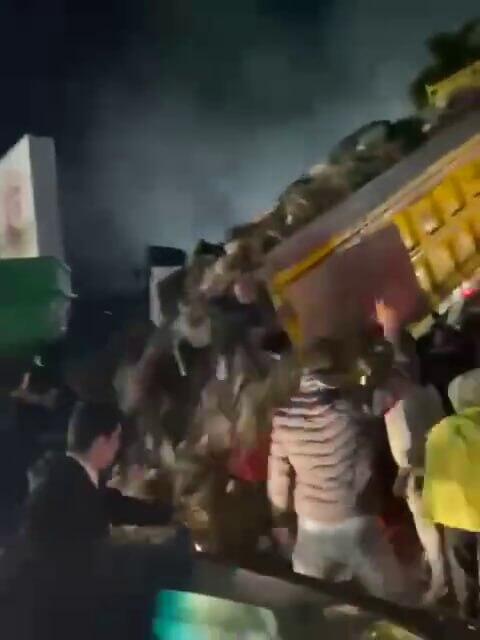Lebanon’s Cabinet on Monday approved an extension of the suspension of flights between Lebanon and Iran, which was initially set to expire Tuesday. It remains unclear when flights will resume.
The decision follows last week’s ban on an Iranian Mahan Air flight scheduled to land in Beirut, which Lebanon’s newly formed government blocked at the last minute. The move came after IDF Arabic-language spokesperson Avichay Adraee warned that Israel would act against civilian flights allegedly used by Iran to transfer cash to Hezbollah—an implicit threat against Beirut’s international airport.
4 View gallery


Hezbollah supporters torch UNIFIL vehicle outside Beirut international airport; Iranian Mahan Air airliner
(Photo: Shutterstock)
Sources told Ynet that Israeli intelligence had identified millions of dollars in cash aboard the Iranian aircraft, reportedly intended to help Hezbollah recover from recent military losses. The flight ban sparked protests from Hezbollah supporters, who blocked roads leading to Beirut’s airport and attacked a UNIFIL convoy.
The unrest drew widespread condemnation within Lebanon and across the Arab world. Seeking to balance public outrage with political pragmatism, Hezbollah announced a “silent protest” on the airport road Saturday, stating it opposed violence while rejecting what it called an unjust decision.
Get the Ynetnews app on your smartphone: Google Play: https://bit.ly/4eJ37pE | Apple App Store: https://bit.ly/3ZL7iNv
In response to Lebanon’s move, Iran announced it would block flights from Lebanon from landing on its soil until the flight restrictions to Beirut were lifted.
Lebanese presidential spokesperson Najat Charafeddine said Foreign Minister Joe Rajji was overseeing efforts to facilitate the return of Lebanese nationals stranded in Iran and ensuring compliance with aviation inspection requirements.
The Mahan Air flight was carrying 300 Lebanese passengers returning from religious pilgrimages in Iran, who are now stuck in Tehran.
Hezbollah-affiliated Lebanese broadcaster Al Manar aired footage Monday purportedly showing stranded Lebanese travelers protesting in the Iranian city of Qom, demanding their government allow their return. According to the report, the passengers called the flight ban “an unjust and unpatriotic decision.”
Iranian Foreign Ministry spokesman Esmail Baghaei said Tehran's position was “clear” and that Lebanese and Iranian foreign ministers had engaged in “constructive talks” aimed at resolving the dispute. He emphasized the importance of making decisions “without external interference.”
Lebanese Parliament Speaker Nabih Berri, leader of the Shiite Amal movement, was quoted by Lebanese daily Al Joumhouria as calling for direct negotiations between Lebanon and Iran to resolve the issue. “We cannot allow the enemy to dictate our decisions as they are trying to do. We are not an Israeli colony, and we will not become one,” Berri said, rejecting any external influence over Lebanese sovereignty.





